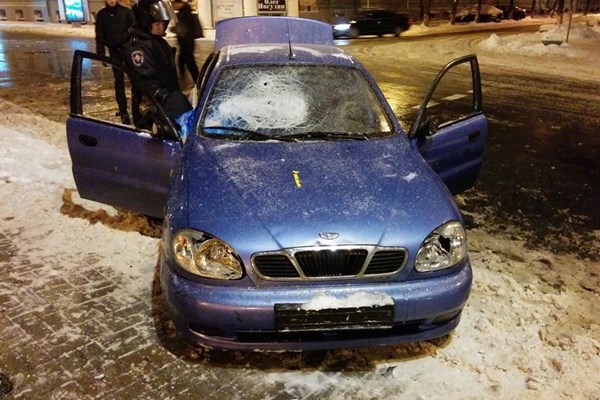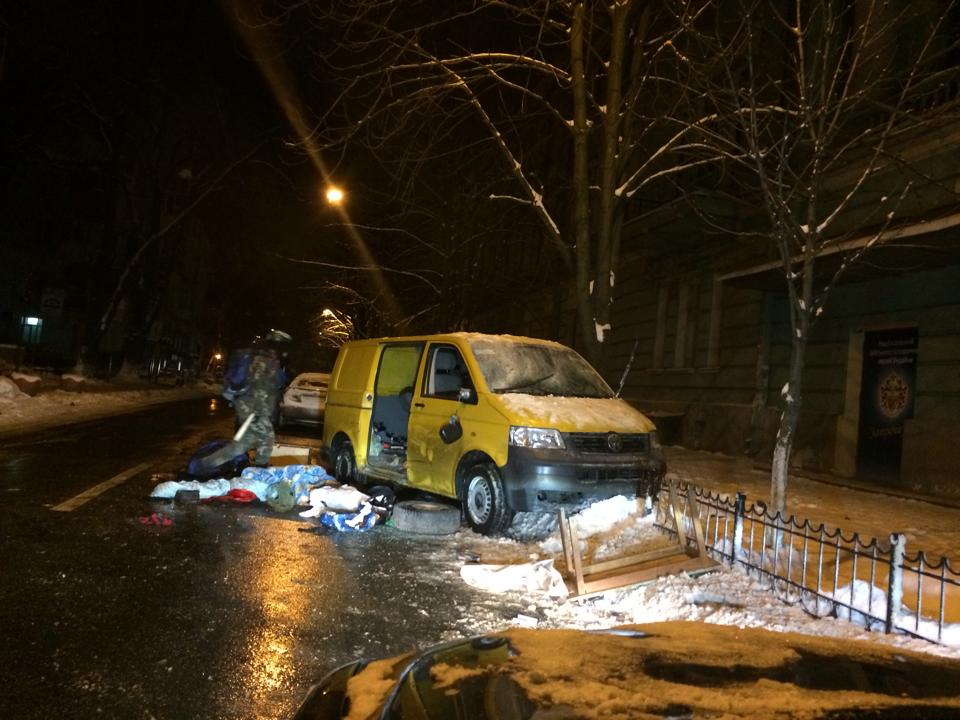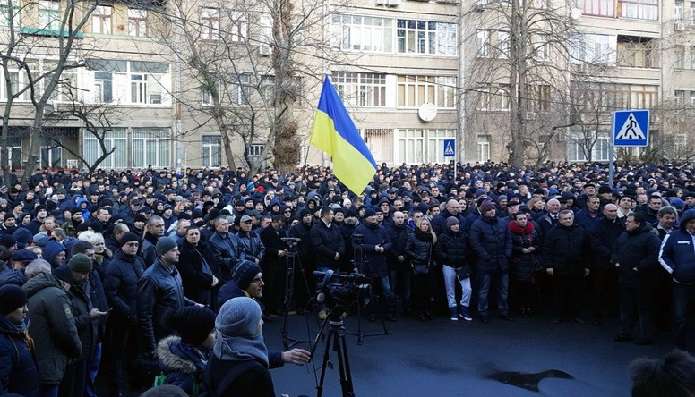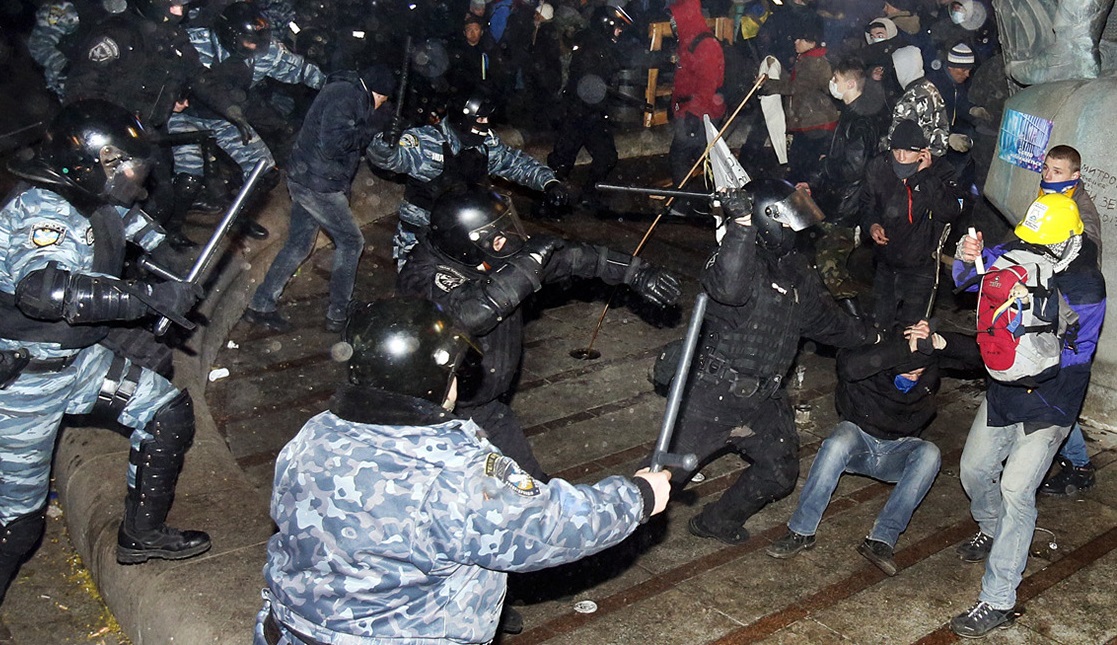Ukraine's glamorous new Patrol Police is only the tip of the iceberg in Ukraine's law-enforcement system reform. A vast majority of the National Police workers will be hired from ex-militia staff, including Berkut, the special unit infamously known for their violent pacification of the protests two years ago. The job interviews for National Police candidates are conducted by Attestation Commissions that include Maidan activists.
Five ex-Berkut members accepted to the new National Police
On December 24, Oleksandr Kravtsov, a Euromaidan activist and a member of one of the Attestation Commissions, posted on Facebook that five ex-Berkut members involved in the pacification of protests in 2013-2014 have now become new National Police members. This information sparked outrage in the media and society.
"I don't understand how ex-Berkut members can be accepted to the National Police," said Roman Sinitsyn, a volunteer and also a member of Attestation Commission commented on Facebook. "Those who were smashing students against the Independence Monument in the night of 30 November [2013] and were breaking ribs and arms of young boys and girls that didn't offer resistance. It all started from beating the students."
To join the new national police force, candidates need to pass specialized tests and an interview. Those who score at least 25 out of 60 points move on to an interview with the Attestation Commission. Candidates for the administrative board must pass a lie detector. For the rest of the positions, a commission can decide to use the polygraph, but a candidate may refuse to do so. Each such a commission consists of current members of the new police force, representatives of the Interior Ministry and militia, psychologists, HR specialists, and representatives from civil society.
Beaten in 2014, an activist meets his offender in 2015
Back in 2013, Oleksandr Kravtsov was one of the founders of the Automaidan movement. Its members, usually representatives of small businesses and the middle class, used auto rallies as a method of protest.
[youtube https://www.youtube.com/watch?v=KLqjSMyDsAk]
In January of 2014, when Yanukovych was still in power and activists were being tortured and kidnapped, Kravtsov along with fellow Automaidan members were brutally beaten by Berkut - a militia bus stopped Kratsov’s car, destroyed it and beat the passengers. The passengers were then taken to the park, undressed and made stay on their knees on the snow for 1,5 hrs. When they were finally brought to the police department, one of the interrogators offered a deal: Kravtsov would admit to hooliganism and would be set free. Kravtsov denied the charges and was arrested for 2 months.


Two years later, the case of Berkut members misusing their power and abusing protesters is still in pre-judicial inquiry. The interrogator who, two years ago, offered Kravtsov a deal, now stands in front of the Attestation Commission as a candidate for a job with the country’s new police force.
"If I was in charge of his interview, I would've asked for self recusal. I am not objective. But it happened that he was interviewed in the next room by my colleagues. So I just came and brought up the facts from two years ago," Kravtsov explained. He is not seeking revenge, he claims, but instead hopes for the court to restore justice.
"I accidentally met him a year ago on the street. But I'm not a man to rush into a fight yelling ‘You will answer for all!’ I'm satisfied with the fact that he didn't pass the interview and won't work in the law-enforcement system any more. If the court decides on a more strict punishment, I would appreciate it".
Reform endangered after old militia's protests
When five ex-Berkut members passed the tests on December 24, Kravtsov decided to inform the public of their actions two years ago. The activist explains that after the militia went to protest against the reform, the commissions became more loyal to all candidates.
"After the demonstrations, the commissions became hesitant about making radical decisions. This allows old staff massively join the New Police. If the commissions don't get additionally instructed about cases when they should use a lie detector, we risk ending up with old corrupt militia in new uniform."
On top of that, Kravtsov says, militia representatives included into commissions argue that a rigorous selection will eliminate 90% of candidates who have experience and competences which will weaken the future police.

On that day, Kravtsov himself voted for accepting some ex-Berkut members. He says, they repent, promised not to carry out criminal orders in the future, and he believed them. Now Kravtsov regrets he didn't initiate using the lie detector.
"Attestation commissions consider cases of ex-Berkut members with an increased precision. This elite force of militia was turned into a personal army of Cerberuses by Yanukovych's regime. Due to the law, one of the key characteristics of the new National Police is that the people trust it," explained Pavlo Kashchuk, a volunteer, activist and journalist, and currently a member of the Attestation Commission. His commission hasn't yet accepted any ex-Berkut staff.
Ex-Berkut members come to the interviews in suits, smile a lot and try to joke. Yet, they all refuse proving their words via lie detector. - Pavlo Kashchuk, Attestation Commission member.
Militia tries to earn trust, but refuses to pass a lie detector
Kashchuk believes that majority of ex-Berkut members were involved in pacifying Maidan, kidnapping activists, and torturing them. But since the proceedings on their cases are still in the stage of gathering evidence, they have the right to apply for a job in the new police force.
"They come to the interviews in suits, smile a lot and try to joke. They all try to assure us that during Maidan they were involved in guarding weapons storage facilities or were in reserve. Yet, they all refuse proving their words via lie detector and this is a sufficient reason for making a negative decision about hiring them to the new police force," Kashchuk said.
Kravtsov says, after he's made the case public, there was a decision about mandatory lie detector tests for all ex-Berkut members who were in Kyiv during Maidan. Kratsov also hopes that the Central Attestation Commission reviews the decision on the hiring of five ex-Berkut members whom he claimed were directly involved in violence on Maidan.
His Facebook post has sparked an intense public debate. Public memory of the crimes is still fresh and vivid and yet, two years later, the perpetrators remain unpunished. But until the court sentences the guilty in crimes against Maidan activists, the alleged ex-Berkut perpetrators will still have an opportunity to apply for a job in the National Police.





